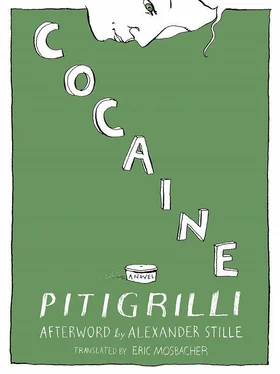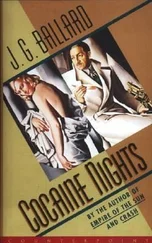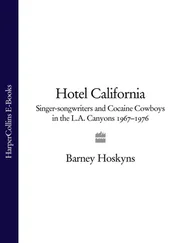“Marius Amphossy,” one of the gentlemen in black said, “you must be brave. The appeal for a reprieve has been rejected. The time for you to expiate your crimes has come. Be strong.”
“I shall be,” the condemned man replied with a scornful and cynical laugh.
The director of prisons and the condemned man’s defense counsel stood behind the public prosecutor. The other gentlemen could not dissimulate their emotion.
The prison clock mournfully struck four.
The gentleman who had spoken read a decree. When he had finished, the executioner’s two assistants took their place on either side of the condemned man. The others made way for them to pass.
Marius Amphossy walked with a firm and confident step. He looked with an ironic smile at us journalists who were watching the tragic scene from a dark corner of the big, cold corridor flanked with cells; terrified eyes behind the peep-hole of every door watched as if hypnotized — were they the eyes of other prisoners sentenced to death or of wretches expecting to be so sentenced?
The executioner led the procession down the long, straight corridor.
Behind him came the condemned man and the executioner’s two assistants. Then came the defense counsel, the director of prisons, the other officials, and the journalists.
He walked down some steps and through a tunnel. The sound of our footsteps echoed in the huge, sepulchral silence.
We went into a room.
There was a priest there, holding a crucifix, and bottles of champagne and other drinks were on a small table.
The priest embraced the condemned man while a warder poured him some champagne.
The condemned man asked for a cigarette. A cigarette was lit and handed to him.
The two assistants cut off the collar of his shirt and summarily cut the hair at the back of his neck; then they seized his arms and tied them behind his back.
The procession moved off again.
While going down some steps Amphossy suddenly wavered. His legs gave way, and he would have collapsed if the assistants had not promptly supported him, holding him under the armpits.
The prison yard exposed the grim procession to innumerable eyes gazing through the little windows. We crossed the yard.
In the cold morning air outside the gate a vehicle with two white horses was awaiting. This was the panier à salade, the Black Maria. Some steps were let down, and the prisoner got in with the executioner, his two assistants and the lawyer.
A hundred yards away the guillotine was awaiting its prey. The horses trotted quietly and cheerfully, with unconscious indifference, as if they were taking a bride to church.
The vehicle stopped with a jerk. The two assistants opened the door and lowered the steps. The executioner jumped out. Marius Amphossy got out, looking terror-stricken. His lawyer remained motionless as if unable to move, as if turned to stone.
The two assistants held the wretched man under the armpits and carried him bodily. As he moved round the carriage Amphossy could see the big deserted square; arms and uniforms glittered; the soldiers of the Garde Républicaine drew their sabers, and the civilians raised their hats.
The condemned man’s face was ashen. His convulsively twisted mouth seemed to be trying to make a plea for mercy to the dawning day, to the life he saw about him.
But did the poor wretch still see anything? No, his eyes no longer saw, though they were staring fixedly at the brown contraption among the foliage of the trees of the boulevard; a tall, slender contraption, three beams, two vertical and one horizontal.
Two drops of sweat flowed down his temples and cheeks. His chin was covered with beads of sweat. He opened his mouth as if to shriek, but no sound came.
He reached the foot of the scaffold. His life was now measured in seconds. Not a sound was to be heard in the big square, not the whisper of a leaf or a flutter of wings; even the fine drizzle seemed to be falling more silently, more religiously.
He mounted the scaffold without moving his legs; death seemed already to have him in its clutches and to be lifting and raising him above other men. In fact he did not walk. His legs, already dead, dragged along like tins that small boys pull along behind them on a string. The hands tied behind his back contracted spasmodically; his breast swelled as if it were about to burst; and his neck swelled too.
The blade of the guillotine gleamed; a round hole was ready to open wider to admit the man’s head and then close firmly round his neck. Beyond it was the basket ready to receive the severed head a few moments later.
The man made a convulsive effort to back away from the terrifying sight, but he could not. Then he arched his breast and thrust back his head as if to provide leverage against some support. Consternation was in the air.
But the executioner’s assistants forced his head down and tripped him, making him fall like a sack on the bascule. The executioner put his head under the lunette, which fell, holding him inexorably as with an iron hand.
This took a moment, a cruel moment that seemed an eternity. The man, who had been flung on the bascule with his hands tied behind his back and his head immobilized beneath the pincers, looked at the basket that opened like an abyss beneath his terrified eyes.
There was a thud, and the head rolled, causing a semicircular spray of blood as it fell.
Justice had been done.
We journalists were allowed to approach. The body was put in a pine coffin. The eyes in the head were still open, and the tongue was out and moved slightly, causing some greenish foam to emerge from the mouth. One of the assistants picked up the head by the hair and put it in the coffin, which was loaded on to a truck and taken away to a medical institute.
Sunlight began to illuminate the square. The Garde Républicaine moved off, and the executioner and his assistants set about dismantling the guillotine.
At the medical institute to which we went a few minutes after the execution they told us that the heart was still beating and that indubitable signs of life were to be observed in the retina. Oh pitiless human laws, oh legal experts, perhaps…
But Tito’s article was still short of two columns, so he launched into some long, Tolstoyan comments on the human right to judge and the right to kill. And as it was still too short, he preceded his account with some digressions about the guillotine.
He recorded the last words of the fat and hawk-like Louis XVI, who called out: Français, je meurs innocent de tout. He recalled Marie Antoinette, whose hair had gone gray in a single night and when she accidentally bumped into the executioner said to him politely: Pardon, monsieur. He mentioned how Elisabeth, Louis XVI’s sister, her shoulders having been bared when she was already under the blade, modestly asked that they might be covered again. And he also recalled the story about the aged Bailly, whose teeth chattered in the November rain. “You’re trembling,” someone said to him. “It’s the cold,” he replied. Tito also mentioned how Charlotte Corday blushed with shame when her shoulders were bared. He recalled Danton (“Show my head to the people; it’s worth it.”); Desmoulins, who asked the executioner to take a lock of his hair to his mother; Adam Lux, who kissed Charlotte Corday before dying; Jourdan Coupe-Tête, who mounted the scaffold with a sprig of lilac between his lips…
But Tito had still not written the two columns that were required, so he repeated the story of the crimes committed by Marius Amphossy of Jamaica, the dreadful killer of schoolmistresses. He also wrote about Jamaica and its rum, and explained why the government had not granted extradition, though international law, etc.
Читать дальше



